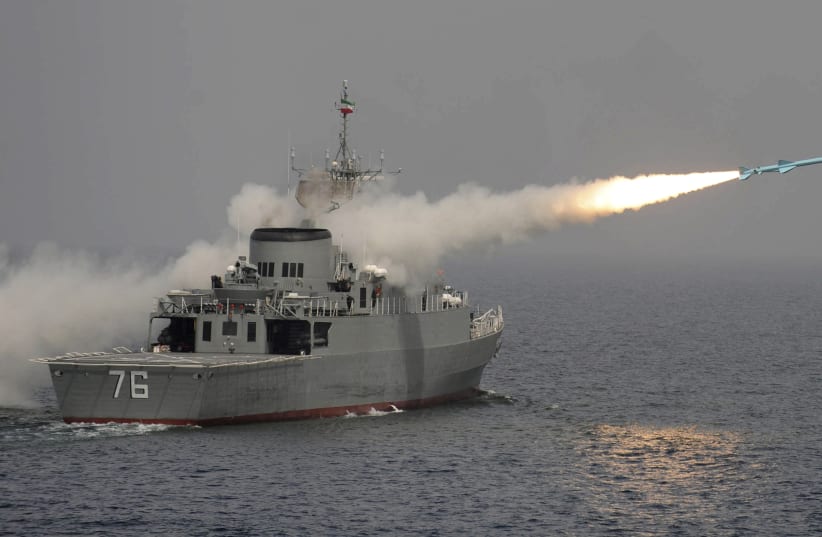Iran and Russia will conduct a joint maritime drill in the Persian Gulf, Iran’s Mehr News agency reported on Monday.
“Based on negotiations with the Russian Navy, the force will dispatch a fleet to the southern regions of Iran this year,” Iranian Army Commander, Navy R.-Adm. Hossein Khanzadi was quoted as saying, without giving a date for the drills.
In early January, Khanzadi said that the two countries were preparing for a joint naval drill in the Caspian Sea region and that the drill would focus on tactical, relief, rescue and anti-piracy issues.
Earlier in the week, Iranian Defense Minister Brig.-Gen. Amir Hatami met with his Russian counterpart Gen. Sergey Shoygu on the sidelines of the 8th Moscow Conference on International Security (MCIS) in the Russian capital.
Fars News reported that during the meeting the new general “renewed the two countries’ determination to bolster military and defense cooperation” and discussed bilateral relations in both regional and international areas.
“Defense and security interactions between the Islamic Republic of Iran and Russia are growing under the auspices of the leaders of the two countries,” Hatami was quoted as saying, adding that the two countries “enjoy high capacities and potentials for increasing bilateral interactions” in military and defense.
Shoygu meanwhile stressed the continued military consultation between Tehran and Moscow and called for increased interactions between the two armed forces.
“Cooperation and interaction of the two countries played an important role within the framework of the Astana Peace Talks in the fight against terrorism and the restoration of peace and security in Syria,” he was quoted as saying.
Russia, which entered the conflict in 2015 and views Iran as a key player in resolving the crisis in Syria, has repeatedly emphasized the importance of the role that the Islamic republic plays in the war-torn country.
Israeli officials have repeatedly voiced concerns over Iran’s entrenchment in Syria and the smuggling of sophisticated weaponry to Hezbollah in Lebanon from Tehran via Syria, stressing that both are redlines for the Jewish state.
In February, Israel’s Channel 12 reported that Iran was operating a precision missile factory built on the outskirts of Latakia near the Russian Khmeimim Air Force Base with the help of the Syrian government and Hezbollah.
In an effort to prevent sophisticated weaponry from reaching Hezbollah, Israel frequently carries out air strikes against Iran and its allies in Syria.
But in a recent interview with The Jerusalem Post, Dr. Yossi Mansharof, Iran and Shi’ite militia expert at the Jerusalem Institute for Strategy and Security, said that the rivalry between Tehran and Moscow is becoming “more visible” in post-war Syria.
“Iran’s deputy FM Ansari recently declared that ‘Russia has never stood by Iran regarding Israel. Tehran and Moscow for now have shared interests in Syria, but if the issue of Israel comes between them, they will part ways.’ This is an important declaration,” Mansharof said.
